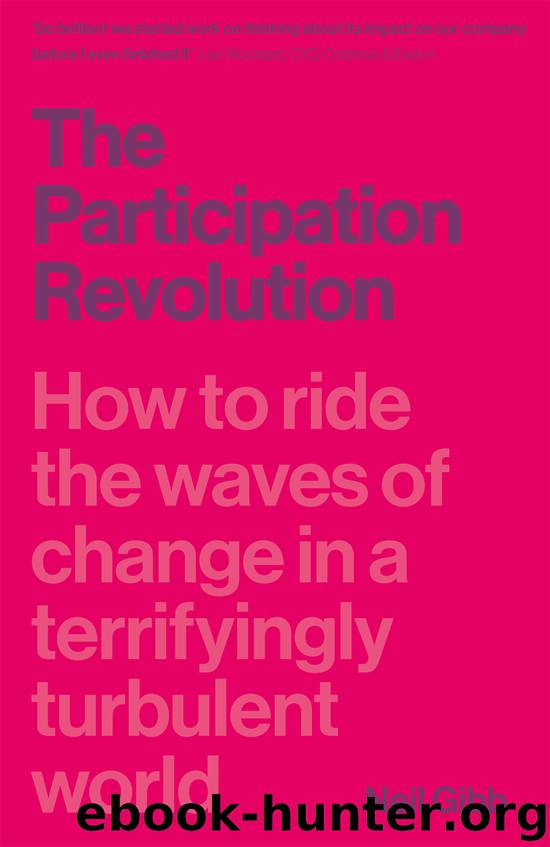The Participation Revolution by Neil Gibb

Author:Neil Gibb
Language: eng
Format: epub
Publisher: Eye Books
Published: 2018-01-22T14:37:45+00:00
8. In the club
“The ambitions for the business were always much bigger than creating a little niche and selling some expensive road cycling gear. The business is all about the sport. I think road cycling is the most beautiful thing in the world, and the toughest sport in the world, and I think it should be the biggest sport in the world…that is the crazy vision that drives me forwards”
Simon Mottram, founder and CEO, Rapha
Coffee once had the kind of reputation that cocaine enjoys today – the fuel of fast living and shifty deals, glamorous or depraved, depending on your point of view. Its rehabilitation started in 1600 when Pope Clement VIII declared it “an acceptable Christian beverage”, influenced perhaps by the delights of a caramel macchiato, but more likely by Venetian traders who saw coffee’s economic potential, and promised to swell the papal coffers. The world’s first coffee house was established in Venice in 1629 and quickly became a meeting place for would-be entrepreneurs, merchants, and late-Renaissance geeks. At the time, money lending was banned by the church in Rome, so if you wanted to source some seed capital, the booths at the back of the coffee shop were a good place to look.
Since then, wherever there have been creative and entrepreneurial conversations, coffee has rarely been far away.
In 1688, a group of sailors, hustlers, and shipowners started to congregate at the newly opened Lloyd’s Coffee House on the east side of the City of London. The shop was close to the docks, so it had access to the best, freshest coffee that was newly arriving from North Africa and the Middle East. Because of this, and its proximity to both the docks and the city’s mercantile centre, it quickly became a place to get the inside scoop on the comings and goings of the merchant ships that were opening up the New World.
A vibrant informal network began to emerge as investors, chancers, and young blades keen to explore the world and make their fortune hooked up. London was only just beginning to emerge as a financial centre, and banking was in its infancy (the first banknote wasn’t released until 1695). Lloyd’s provided the means to satisfy a critical emerging need of the time – the need for capital investment in what were the high-risk start-ups of the day, speculative voyages to the New World, bringing back valuable spices and all manner of goods. The coffee shop became a place where all sorts of creative ways to borrow money and insure risk could be agreed with a nod and a handshake.
Lloyd’s soon became the place to go if you wanted to get involved in the risky but potentially highly lucrative merchant shipping opportunities that the New World afforded. The more people connected with colleagues and business associates, the more Lloyd’s became the epicentre for New World business opportunities, which in turn drew others in, a sign that a social retrovirus was now in play.
Three years after it opened, Lloyd’s
Download
This site does not store any files on its server. We only index and link to content provided by other sites. Please contact the content providers to delete copyright contents if any and email us, we'll remove relevant links or contents immediately.
Nudge - Improving Decisions about Health, Wealth, and Happiness by Thaler Sunstein(7689)
Deep Work by Cal Newport(7057)
Principles: Life and Work by Ray Dalio(6404)
The Doodle Revolution by Sunni Brown(4741)
Factfulness: Ten Reasons We're Wrong About the World – and Why Things Are Better Than You Think by Hans Rosling(4729)
Eat That Frog! by Brian Tracy(4513)
Thinking in Bets by Annie Duke(4214)
Hyperfocus by Chris Bailey(4109)
Visual Intelligence by Amy E. Herman(3774)
Writing Your Dissertation in Fifteen Minutes a Day by Joan Bolker(3715)
Ogilvy on Advertising by David Ogilvy(3598)
Hidden Persuasion: 33 psychological influence techniques in advertising by Marc Andrews & Matthijs van Leeuwen & Rick van Baaren(3549)
How to Win Friends and Influence People in the Digital Age by Dale Carnegie & Associates(3543)
How to win friends and influence people by Dale Carnegie(3464)
The Pixar Touch by David A. Price(3428)
Schaum's Quick Guide to Writing Great Short Stories by Margaret Lucke(3368)
Deep Work: Rules for Focused Success in a Distracted World by Cal Newport(3219)
Work Clean by Dan Charnas(3111)
The Slow Fix: Solve Problems, Work Smarter, and Live Better In a World Addicted to Speed by Carl Honore(3001)
